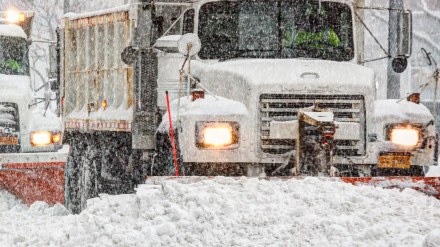Winter weather advisories always urge caution when dealing with snow, gusty winds, ice, and bitter cold.
But how should churches address inclement weather issues for their employees? And are employees entitled to pay for time missed due to bad weather?
Combine caution and common sense
As an overarching human resources matter, caution and common sense must be practiced when it comes to inclement weather situations.
- No employer should expect employees to risk life and limb to get to the office.
- It may be prudent to cancel or postpone program activities, too.
- Watching the weather forecast and staying attentive to public service announcements (e.g., school closings, public transit schedule adjustments) should help church leaders make responsible decisions.
- Remote-working options can help as well, with employees handling tasks from home through available technology.
Understand employee classifications
With respect to employers’ pay obligations, three key factors apply: (a) whether the employees are “exempt” or “nonexempt” under the federal Fair Labor Standards Act (FLSA) and comparable state laws, (b) whether the employer is open for business, and (c) whether money matters more than morale.
The FLSA distinguishes between exempt and nonexempt employees.
To be classified as “exempt,” an employee must (a) be paid a salary, (b) of at least $455 per week, and (c) have certain skills or duties (e.g. executives, professionals, or administrative employees who regularly exercise discretion over significant matters—this is known as the “white-collar exemption”; but also note how the “ministerial exception” plays a role for certain positions).
All other employees are considered “nonexempt,” and are entitled to overtime pay and other legal protections.
On inclement weather days, exempt employees are slightly better off than nonexempt employees. The key difference is that nonexempt employees are entitled to pay only if they work, unless the business is closed.
Exempt employees, on the other hand, are entitled to pay regardless of the circumstances.
One common mistake churches make is to improperly deduct pay for exempt employees, essentially giving them unpaid leave for missed work. At least theoretically, a risk may then arise that employees may be reclassified as nonexempt based on such a pay modification. That’s why it’s better for churches to make certain that exempt employees receive their regularly scheduled compensation.
Requiring PTO in exchange for office closures
Some churches might consider making all employees to take paid leave as a result of an office closure.
Legal considerations aside, this may be a very unpopular decision.
Accordingly, churches should adopt an inclement weather policy. The policy should:
- 1) provide clear guidelines addressing potential use of paid leave;
- 2) address pay deductions for nonexempt employees’ missed work, and perhaps even offer extra paid “snow,” “cold,” or other inclement weather days when appropriate.





